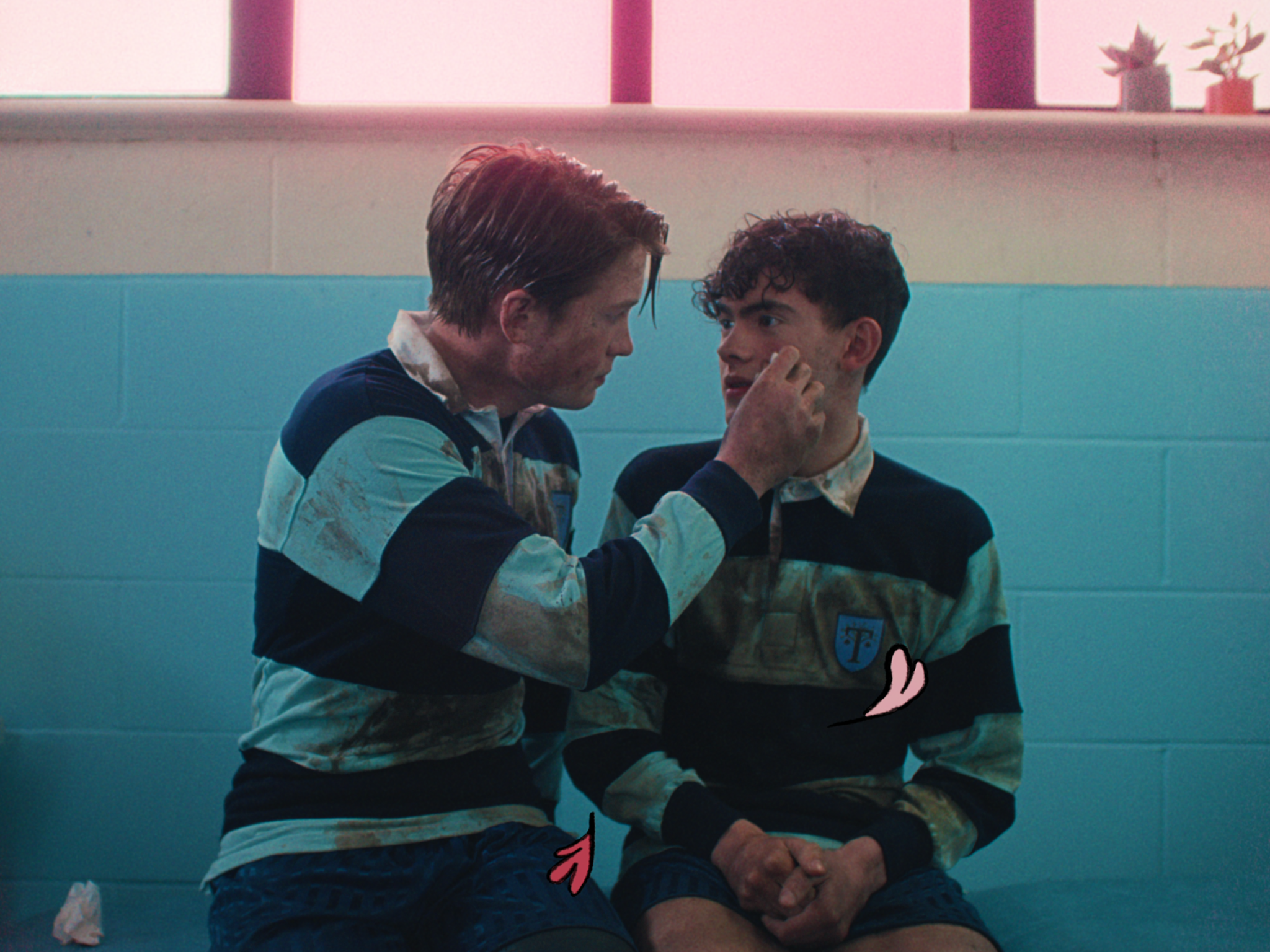Heartstopper’s sunny vision of school queerness is a fantasy – but that’s OK
Netflix’s hit show depicts school as somewhere that LGBTQ+ teenagers can find comfort and acceptance. Amanda Whiting celebrates a place where the bullies are finally on the back foot


Your support helps us to tell the story
From reproductive rights to climate change to Big Tech, The Independent is on the ground when the story is developing. Whether it's investigating the financials of Elon Musk's pro-Trump PAC or producing our latest documentary, 'The A Word', which shines a light on the American women fighting for reproductive rights, we know how important it is to parse out the facts from the messaging.
At such a critical moment in US history, we need reporters on the ground. Your donation allows us to keep sending journalists to speak to both sides of the story.
The Independent is trusted by Americans across the entire political spectrum. And unlike many other quality news outlets, we choose not to lock Americans out of our reporting and analysis with paywalls. We believe quality journalism should be available to everyone, paid for by those who can afford it.
Your support makes all the difference.The emotional troughs of Heartstopper are shallow sandbars. The art teacher is a font of useful advice. Most students are lucky enough to have supportive friends. And the really lucky ones even have Olivia Colman for a mum.
On Netflix’s new queer romance series, secondary school is a place where bullies lose, nerds have great hair, and everyone knows your name. Having spent eight episodes in its warm clutches, I’d happily enrol.
We enter Kent’s Truham Grammar School for Boys through Charlie (newcomer Joe Locke), an adorably tousled 14-year-old with a crush on his school’s rugby star, Nick (Kit Connor, whose voice you might recognise as Pantalaimon from His Dark Materials). In a lovely subversion of genre, Nick is a nice boy, with flowy locks to rival Charlie’s own. Charlie is out among his classmates, and the bullying that resulted from his disclosure is mostly in the past. Friends and teachers refer to it, but never with specificity – just the promise that they’ll protect him better from now on. Then, they actually follow through on that promise.
It’s hard to overstate how refreshing it is, at least for television, to meet a young gay character on this side of coming out. Charlie knows who he is and who has his back, his sister and father included. Now the most painful part of adolescence is waiting for the boys he likes to find a way out of their own closets.
Heartstopper hits all the notes a high-school romance series should. There are birthday parties and band practices. One milkshake with two straws. In contrast to Netflix’s other teen hits, such as Sex Education or even Never Have I Ever, school itself can be a refuge. It’s where Charlie escapes the stress of sending the perfect DM to his crush. It’s where he hangs out with Tao and Isaac, friends whose most enduring gripe with Charlie is that Charlie doesn’t like them enough. Despite the intrusion of smartphones, Truham Grammar is oddly and appealingly timeless.
There are bad guys, of course. Every school has them. They stick to their own turf: the rugby pitch, the shopping mall cinema, the school picnic tables. Which is to say, you can avoid them simply by knowing where not to sit.
Charlie’s nemesis, Harry (Cormac Hyde-Corrin), is an older student whose harassment chiefly takes the form of invasive questions: what’s it like to be gay? Do you fancy Harry Styles? Who do you like? Heartstopper is based on Alice Oseman’s 2018 graphic novel, which is illustrated in the style of loose doodles, hearts and falling leaves scribbled in the margins, not unlike what a kid might leave in a textbook. Maybe it’s Harry’s comic book origins that keep him from ever growing too menacing.

If Euphoria, HBO’s gritty show full of sex, drugs, and trauma, represents an older generation’s wild fears of what being a teenager is like right now, then Truham Grammar is the high school they wish existed. Turns out what’s left of teendom when you take away the alcohol, peer pressure, academic stress, overbearing parents, and bad teachers, is petty drama, dating and sports day.
One of the most pleasurable things about Heartstopper is that it’s not trying to train a spotlight on the dark underbelly of anything. It’s school in the aspirational sunshine of what should be an ordinary day. Here, a gay highschooler’s romantic experience isn’t significantly more traumatic than the regular highschooler’s romantic experience. It may not be realistic, but, then again, perhaps it’s worth questioning how revelatory any teen TV made by adults can really be.



Join our commenting forum
Join thought-provoking conversations, follow other Independent readers and see their replies
Comments